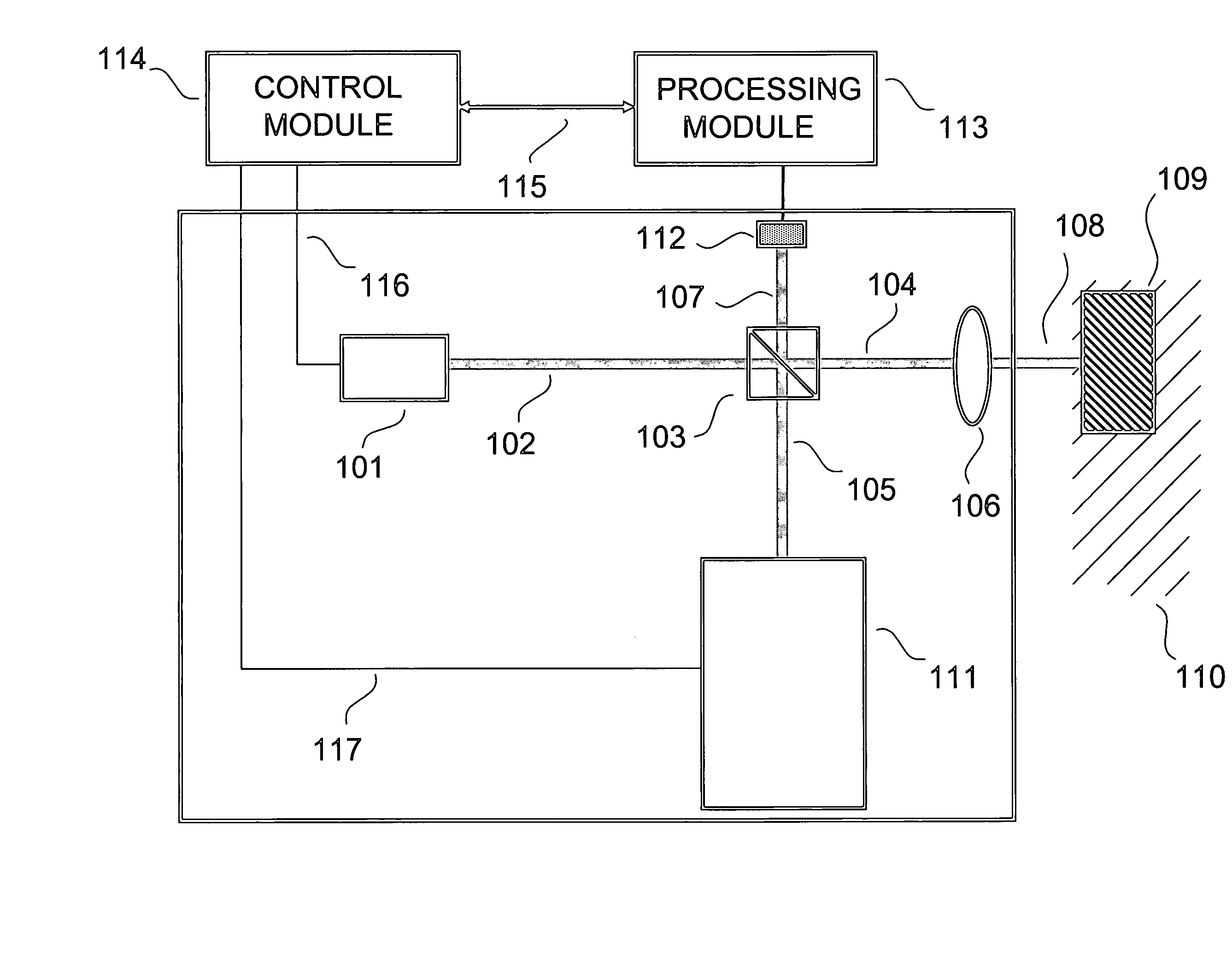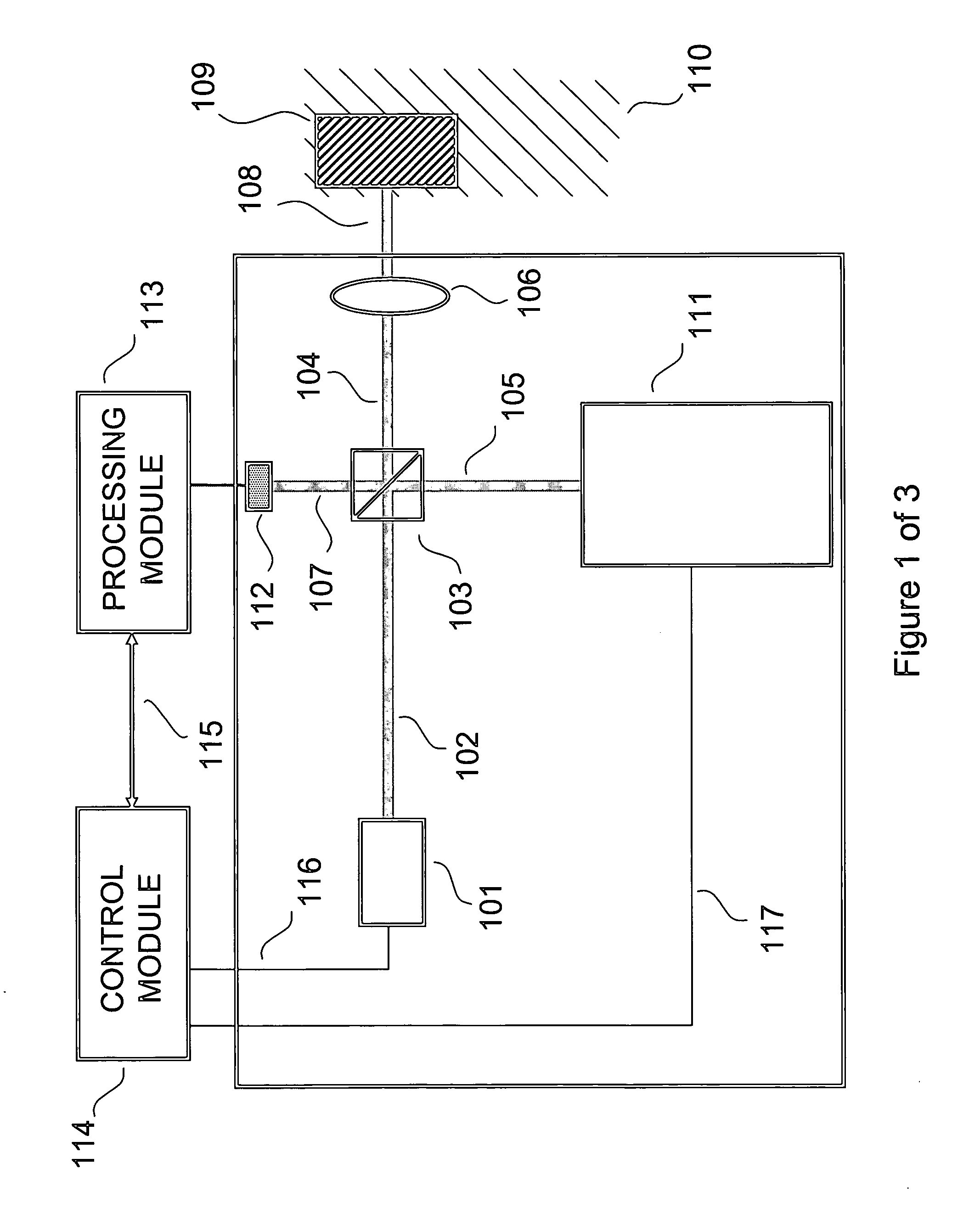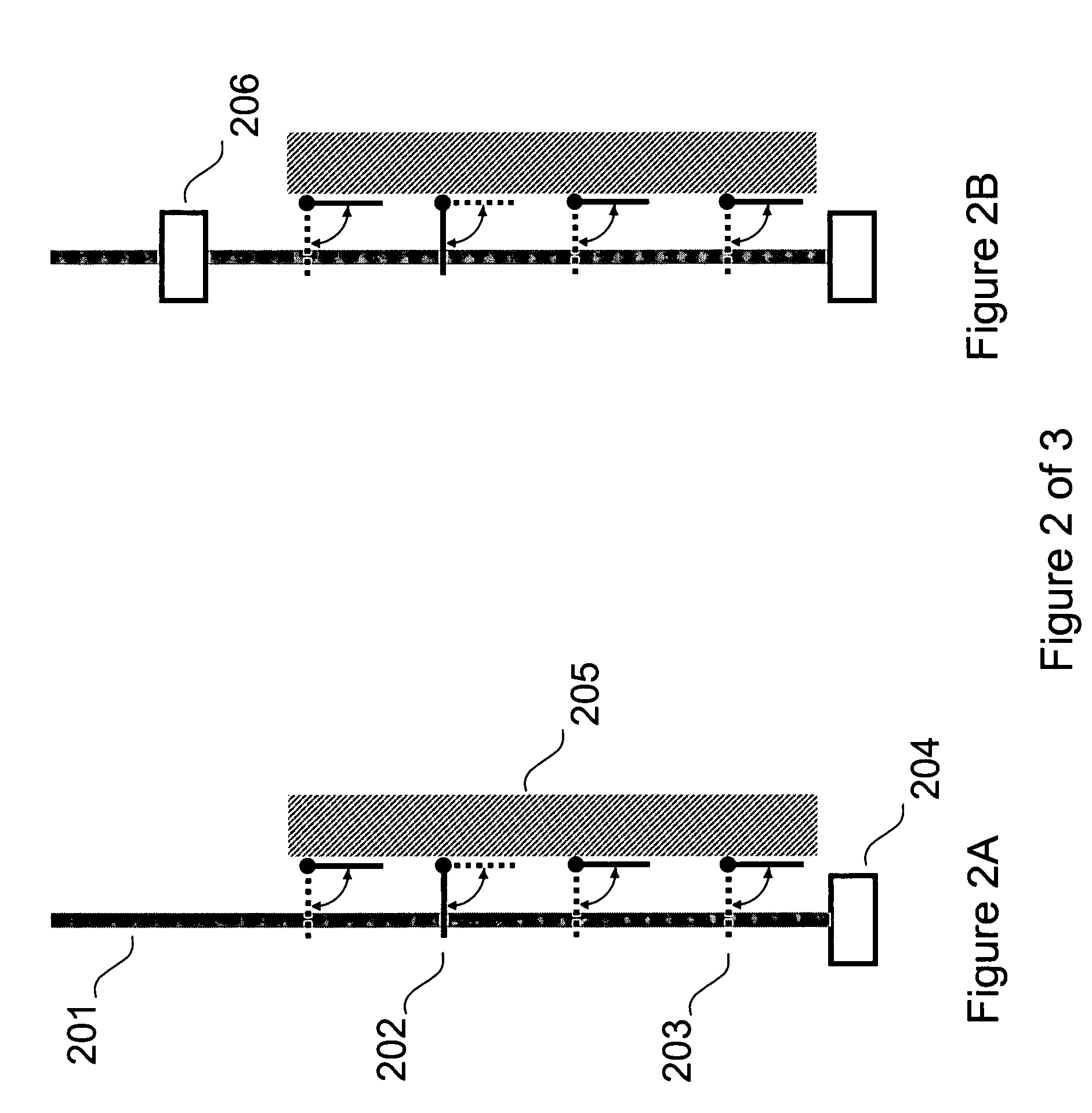Concurrent scanning non-invasive analysis system
a non-invasive analysis and scanning technology, applied in the field of non-invasive optical imaging and analysis, can solve the problems of inability to de-convolute the required measurement, the technique is vulnerable to inaccuracy, and the risk of infection, so as to avoid motion artifacts and avoid the effect of large siz
- Summary
- Abstract
- Description
- Claims
- Application Information
AI Technical Summary
Benefits of technology
Problems solved by technology
Method used
Image
Examples
Embodiment Construction
[0020] Optical coherence tomography is based on splitting the output of a broadband optical source into a probe beam and a reference beam and of varying the optical path length of the reference beam to scan the target. This imaging and analysis technology has problems and limitations including problems and limitations related to motion occurring within the duration of a scan.
[0021] The present invention is a novel interferometric approach, which addresses these problems and limitations, by concurrently acquiring multiple meaningful interferometric signals from multiple depths within the target, thus avoiding relative motion artifacts. For purposes of this invention “concurrently acquiring” includes simultaneously acquiring and acquiring at a speed that is significantly higher than motion artifacts. Similarly “concurrent” includes “simultaneous” and “at high speed with respect to motion artifacts” and “concurrently” includes “simultaneously” and “at high speed with respect to motion...
PUM
 Login to View More
Login to View More Abstract
Description
Claims
Application Information
 Login to View More
Login to View More - R&D
- Intellectual Property
- Life Sciences
- Materials
- Tech Scout
- Unparalleled Data Quality
- Higher Quality Content
- 60% Fewer Hallucinations
Browse by: Latest US Patents, China's latest patents, Technical Efficacy Thesaurus, Application Domain, Technology Topic, Popular Technical Reports.
© 2025 PatSnap. All rights reserved.Legal|Privacy policy|Modern Slavery Act Transparency Statement|Sitemap|About US| Contact US: help@patsnap.com



